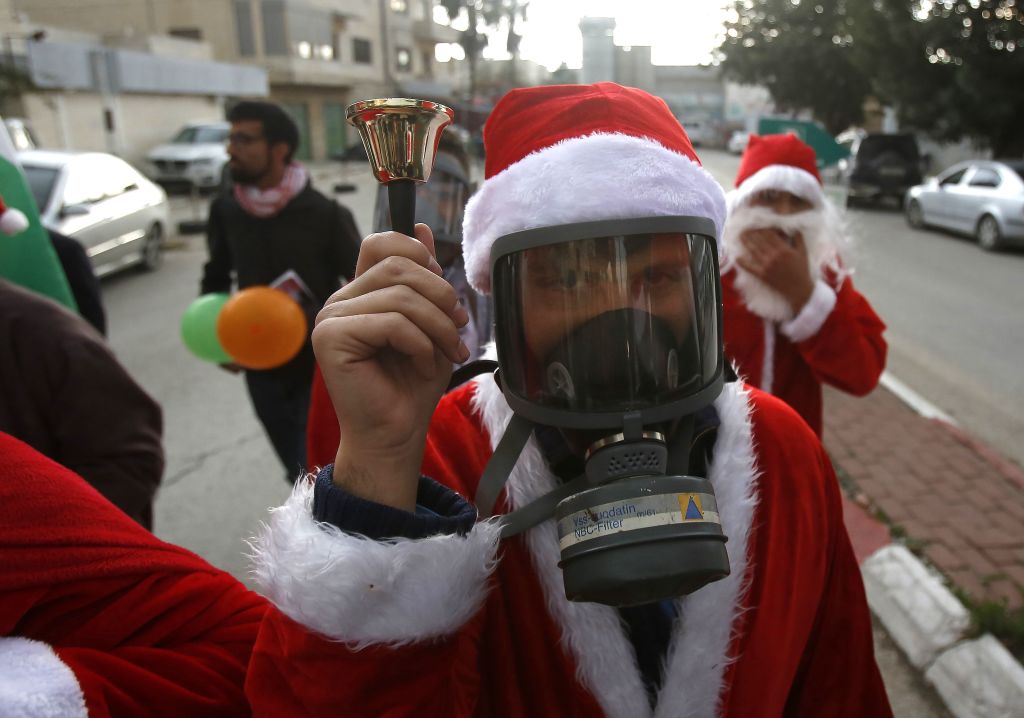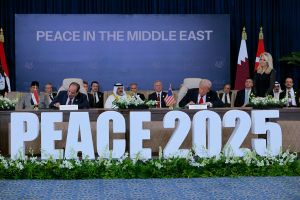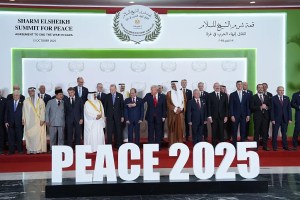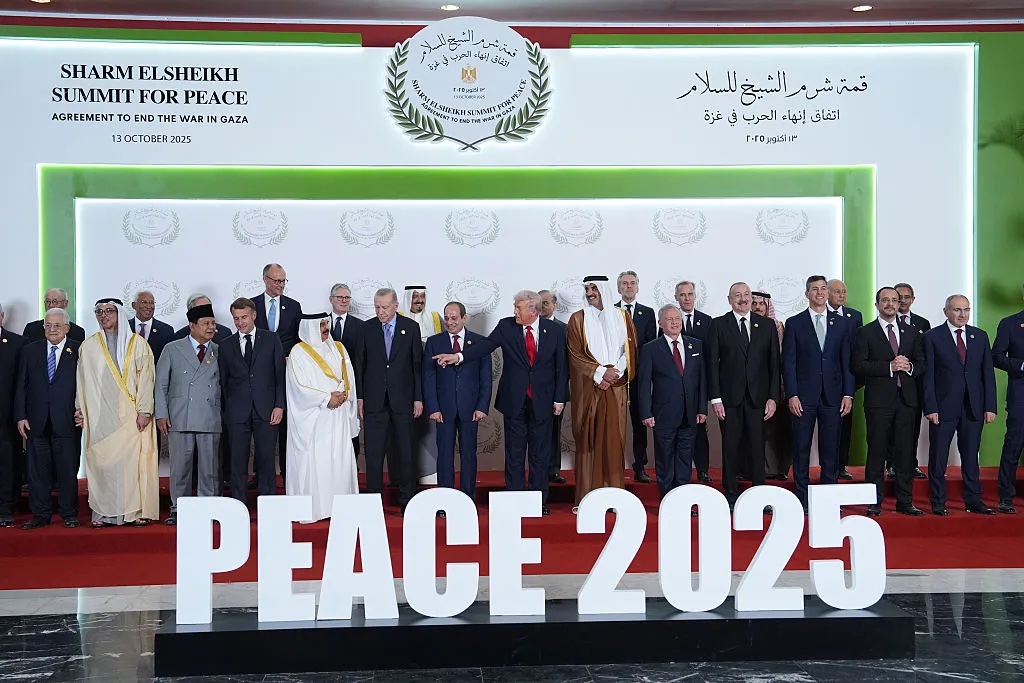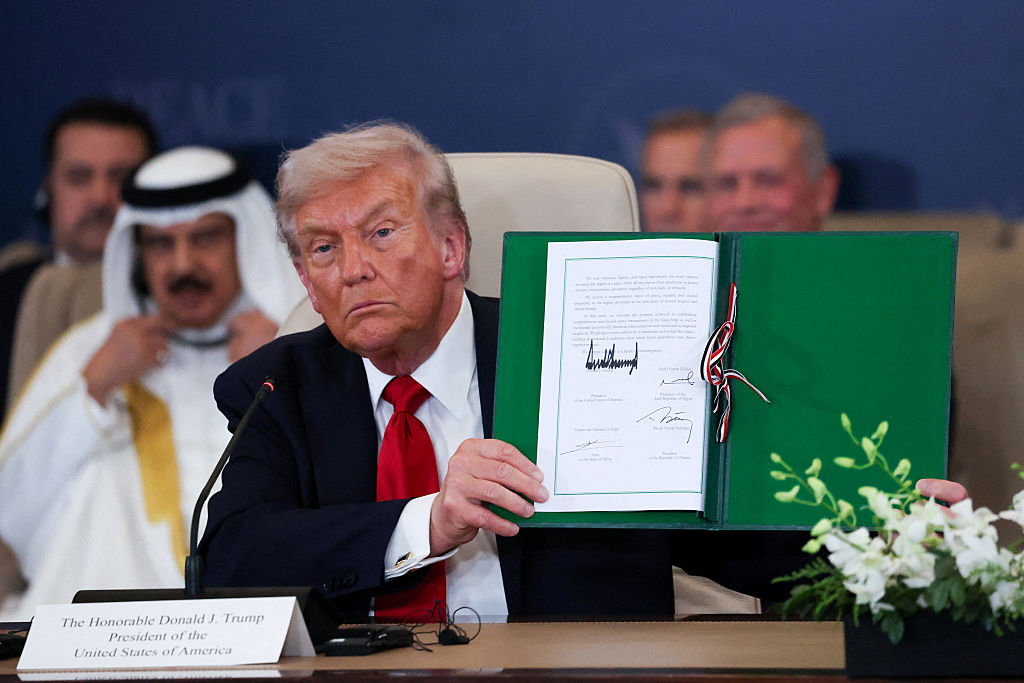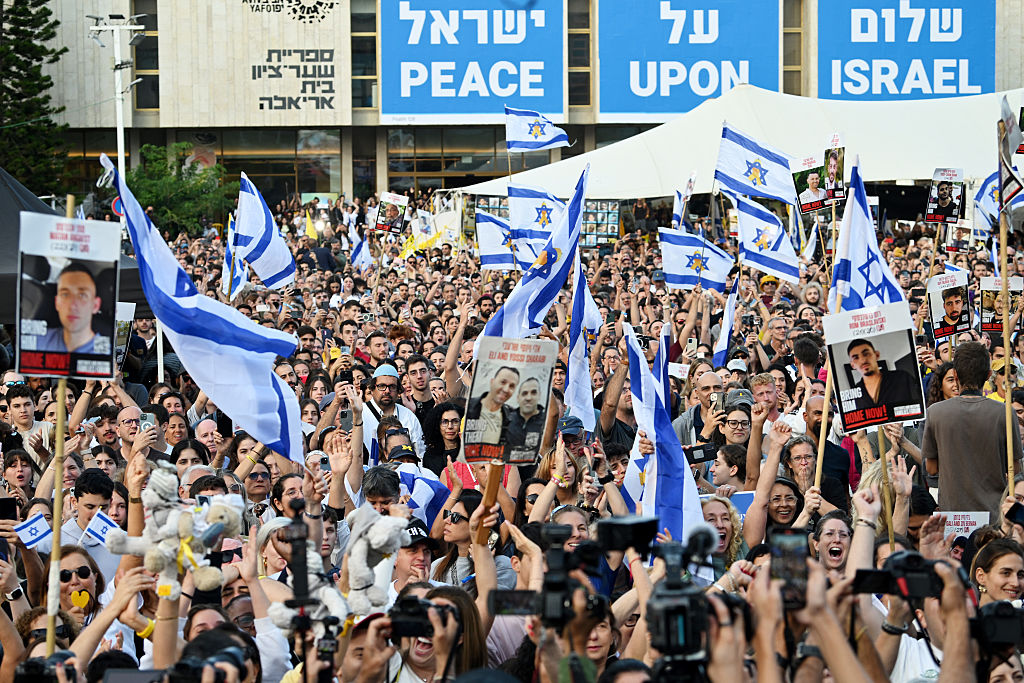O little town of Bethlehem, how still we see thee lie. Largely because of the big concrete wall that divides you from Jerusalem, and prevents Islamists from Hebron from blowing up Jewish civilians in the holy city. Such are the facts on the ground, and such is the world in which we live, and the chasm between religious aspirations and political realities.
I was reminded of these facts on Saturday night when, as I flailed through the chords at our neighborhood carol-singing party, Phillips Brooks’s lyric of 1868 shot past my eyes. Now, some Jews complain about Christmas. On Friday, Julia Ioffe even complained that the ‘omnipresence of Christmas for a whole month is deeply wearyingly and alienating’ to the people that she coyly referred to as the ‘some of us who do not celebrate’. Ioffe even demanded, ’If you want me to respect you, please respect me, too.’
I don’t understand this. Jews are two percent of the American population, professing Christians are 75 percent, and most of the rest are non-professing Christians. It’s cheering to see a society so divided by politics united by a bit of seasonal goodwill. Platitudes are all that keep us from each other’s throats. Nor do I suffer a crisis of faith if someone forgets to say ‘Happy Holidays’.
To me, Christmas is a gig. There may be no such thing as the ‘international community’ in politics, but there is one in music. A good jam gives you hope for humanity, especially when history casts you as antagonists. And though I haven’t cleared this with a rabbi, I think it’s a mitzvah, a good deed, to add some swing to the neighbors’ devotions. If I want them to respect me who does not celebrate, then I should respect them.
It goes both ways, too. My late uncle wasn’t Jewish, but he was an opera singer and actor, so he got the picture. Early in his career, he developed a useful Saturday gig singing in synagogue choirs. My uncle didn’t look Jewish — at least, not until he donned a kippah, which makes anyone look Jewish, even the Prince of Wales — but he certainly sounded it. The synagogue songbook, like many of the Victorian carols, descends from Austro-German classical music, but with side curls of Oriental noodling added for lugubriousness.
‘They do like it mournful, don’t they?’ said a non-Jewish friend who moonlights on the Orthodox wedding circuit in London with the splendidly named Moshe and the Mitzvah Men. Yes, we do. There’s nothing better than a minor sequence for wringing out the tears of exile. In Nausea, Jean-Paul Sartre deploys ‘Some of These Days’ as a reminder that all of us are adrift in the world. And nothing better confirms the hope of redemption than setting that same minor sequence to a fast offbeat, a trick that works as equally in Polish klezmer as in Jamaican ska. For life is as bitter-sweet as a Bendick’s mint, the Victorian candy on which Her Majesty the Queen nibbles after her Christmas dinner.
The Christmas carols are major-key stompers, full of faith, hope, and Zionist propaganda. So it follows that if you’re a tedious lefty like Iulia Joffe who objects to the existence of the Jewish state, you’d object to people saying ‘Merry Christmas’ too. Just look at the lyrics of the carols. It’s ‘Once in Royal David’s City’, and Zion this and Israel that. Nothing about al-Quds or Roman province of Palestina. Just the facts on the ground of the Land of Israel, and a Jewish baby who was born, born, born on Christmas Day.
As someone who checks the religious demography of the Middle East three times a day, I’m baffled that Christians in the West don’t seem to care about what has happened to Christians in the Middle East. The living roots of their faith are being uprooted, the evidence for the existence of their inner lives destroyed — apart, of course, from in Israel, where the Christian population is rising. I’m baffled too by the way many Christians shrug off their religion. What do they intend to replace it with? Netflix and MSNBC? Politics?
The world may be Balkanized, but the Balkans are where the music meets, and from where the common vocabulary of Levantine and Eastern European music flows. ‘Byzantine scales,’ a lyra-maker told me as we jammed on the step of his shop in Rethymnon, Crete. ‘Palestinian music,’ a young kanun player told me in Boston after playing the same scales at a jam with a Turkish band.
‘Where are you from?’ they both asked. This question, which people ask all the time in the Mediterranean, actually means, ‘What are you?’
‘Jewish,’ I replied, the first time in Greek and the second in Arabic. In both cases, they gave the combination of nodded head and lifted eyebrow that means, ‘Of course.
Same notes, different drum. So, goodwill to all men, and especially to the fellows in the band. Though there be but little peace on earth, the stage, as Keith Richards has observed, remains the one place where you can find a little peace. And Merry Christmas, whatever you are.
Dominic Green is Life & Arts Editor of Spectator USA.



